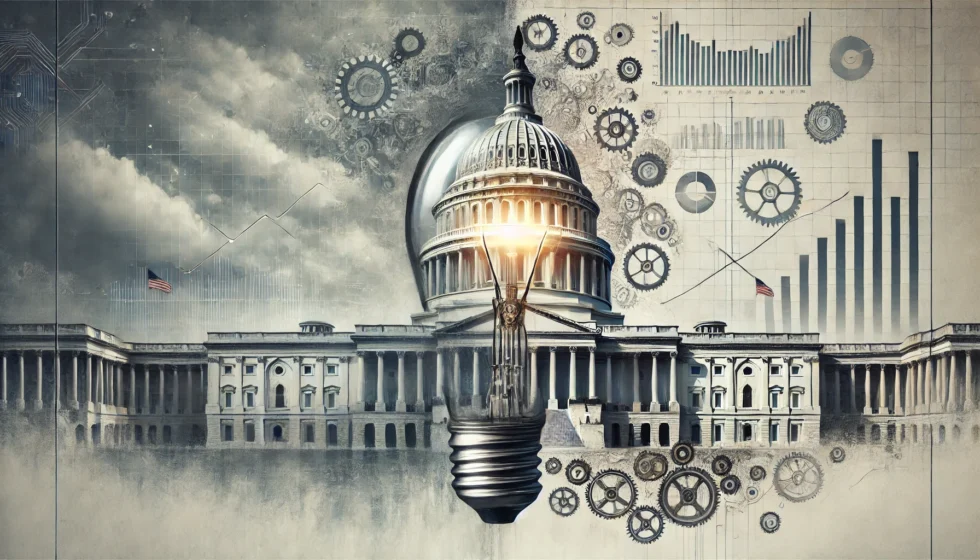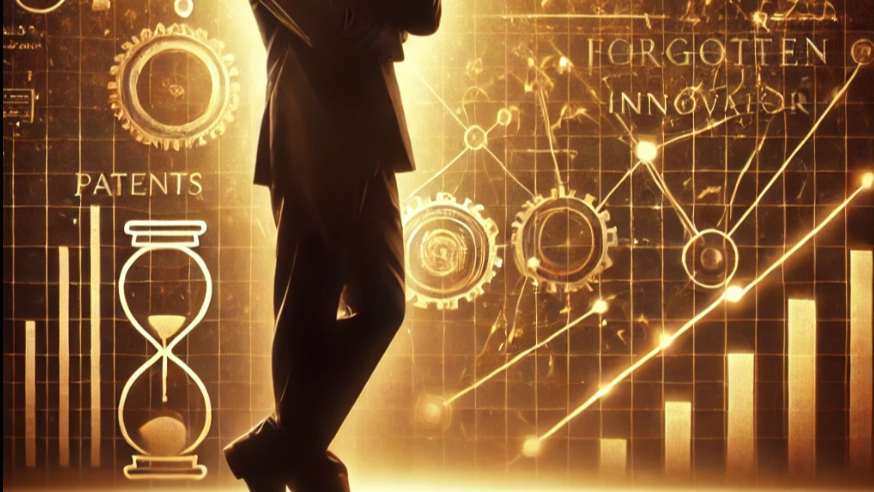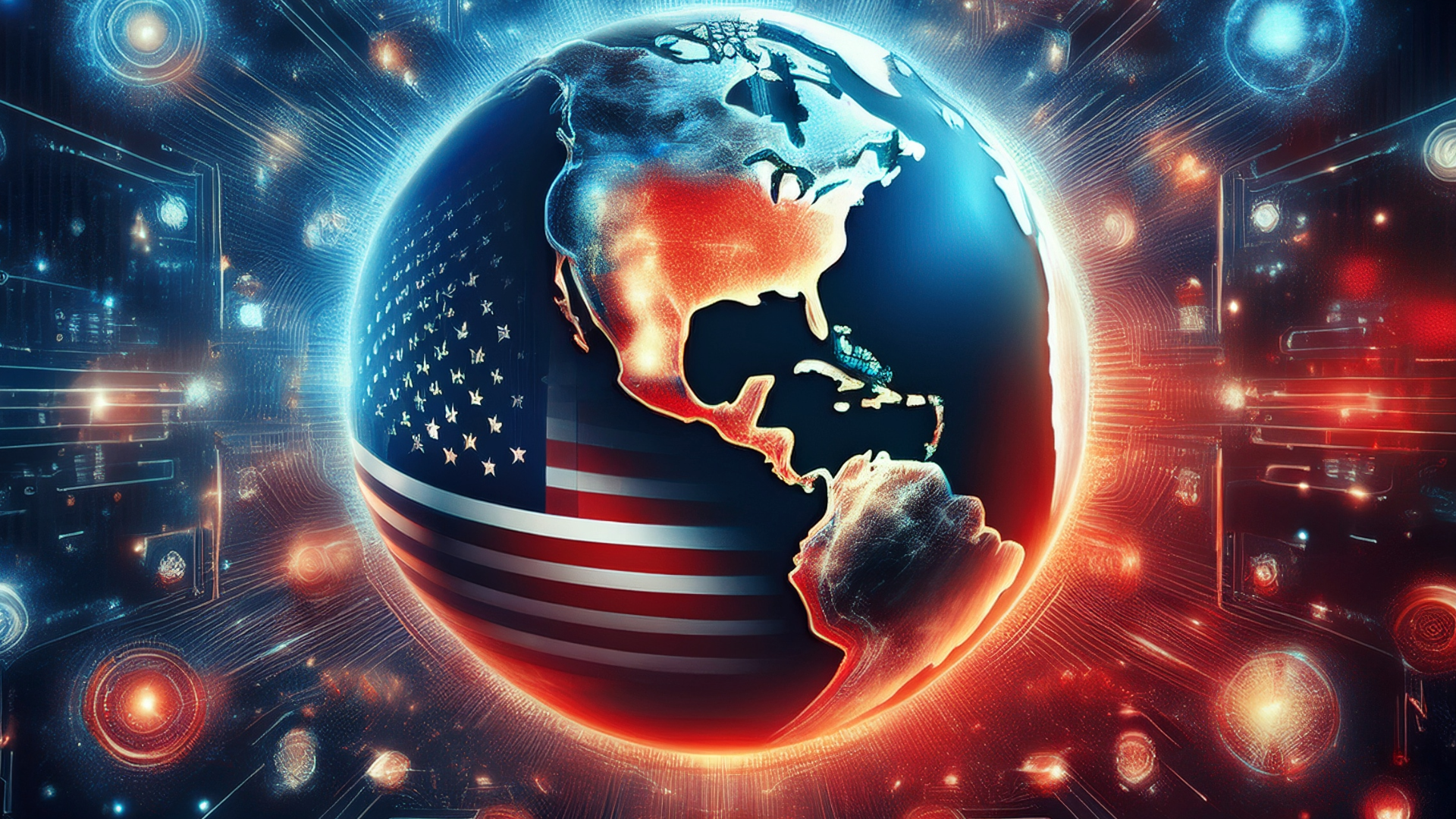
If a tree falls in the forest and no one is around to hear it, does it make a sound? A recent study by the Sunwater Institute “Patent Quality in the United States, Findings and Suggestions for Policy Makers” should have landed with a deafening sound but has been largely ignored. It finds that the United States Patent and Trademark Office (USPTO) has a pronounced bias against innovation, when compared with other countries’ patent offices.
Professor Mossoff provides useful background. As noted in a summary of his Mossoff Minute:
For over a decade, there has been a narrative driven by big tech that the U.S. patent system is broken, with a high percentage of “bad patents.” In this Mossoff Minute, Professor Adam Mossoff discusses a recent rigorous study by the Sunwater Institute (a nonpartisan think tank) that reviewed 20 million patent claims and found that only 7% of patents are erroneously granted by the USPTO, while 18% of valid claims are erroneously rejected! This evidence-based study refutes the long-standing claims of systemic issues and highlights the need for data-driven policymaking.
In this connection, a remarkable statistic is that: Google and its affiliates had at least 427 meetings at the White House during President Obama’s tenure, according to data from the Campaign for Accountability and The Intercept. The Report attests to their effectiveness. It appears they were similarly effective in influencing the Supreme Court and Congress.
Lasting Effect of False Narrative
The effect of this false narrative is difficult to overcome, as was likely known by Big Tech when they promoted it. As extensively discussed in the article referenced in the footnote, people continue in their initial belief even in the face of contrary evidence. They, including judges, ignore contrary facts, conjure new facts and theories, and engage in motivated reasoning to avoid any contradiction of their initial belief. Justice Breyer was fully taken in by the ani-innovation cabal’s narrative as evidenced by numerous comments. For example, he stated, “here are these things, for better words, let’s call them patent trolls, and that the Patent Office has been issuing billions of patents that shouldn’t have been issued. I overstate but only some”. At that time only 9,000,000 patents had been issued.
Damage Caused by False Narrative
The effects of this anti-innovation bias for, among other things, national security, and job and wage growth are profound. Charlie Munger once said, tell me the incentive and I will tell you the result. Disincentives to innovate in the United States have coincided with a number of troubling trends. This includes:
- While the U.S. was busy destroying its patent system, China made its patent system much stronger. Today, China does not have such disincentives, which has enabled China, in just over a decade, to take the global lead in 37 of 44 technologies critical to our economic and national security.
- Many smaller inventors have abandoned the United States Patent system and no longer innovate. Absent innovation production will flow to the lowest cost producers, which will almost always mean exporting jobs. As stated in the Study improper rejections may lead to those innovations not being commercialized and therefore never reaching the public. China’s startups now attract more early-stage investment, while similar startups in the U.S. attract less. That flip-flop enabled China to quickly overtake the U.S. in funding of artificial intelligence (AI) startups. As reported by The Verge, a 2018 report by C.B. Insights showed that “[China] accounted for 48 percent of the world’s total AI startup funding in 2017, compared to 38 percent for the U.S.” More recently, Reuters reported that U.S. startup funding was down 30% in 2023. These errors reduce the incentives for inventors to develop their ideas. Thus, the ultimate cost of these errors includes the economic value of the inventions that are not developed and commercialized.
- While there are effective corrective mechanisms in federal courts to address improperly issued patents, it is very important to note that there is not any corrective mechanism to address the failure to issue valid patents. In this regard, we will provide evidence in a more extensive paper of how even the appeals process had been corrupted by the false narrative.
Effect on Small Inventors
As you know, parties are more likely to act on their biases against the weakest parties, in this case small inventors. This is likely why the Study shows that it is about 50% more likely that a patent held by a small entity will be challenged in the USPTO. This is, in the dry words of the Study, “statistically significant” which means it did not occur by chance. Discouraging innovation by small inventors is not good public policy. After all, US innovation history shows that small inventors produce most of America’s critically important and groundbreaking inventions. Therefore, prompt steps should be taken to remedy the causes of this disparity.
Bias not Confined to the PTO
The false narrative referenced above has influenced other important actors. Among these is the Supreme Court which has issued a number of opinions with scant or no historical basis which disincentivize innovation. The degree to which the false narrative took hold is stunning. The late Justice Scalia went as far as using the pejorative and undefined term “patent troll” is his 2015 dissent in Commil v. Cisco. When Congress passed the America Invents Act in 2011, the halls of Congress were echoing with a catchphrase that there “a special place in hell for patent trolls.” If Congress was subject to truth in labeling, this fraught legislation would be renamed the “China Invents Act.”
The Way Forward
The importance of incentivizing innovation should be obvious. The success of the American economy is largely dependent upon innovation. Without innovation the lowest cost producers will be overseas, and jobs and investment will follow. The findings in the Study show there is a problem. Only those who are self-interested or are naive would conclude that the problem is limited to the USPTO.
Legislation must restore patent rights. Given the bias against innovation, any such legislation must, to the extent possible, provide clear and objective criteria for determining the validity of patents.
The current anti-innovation posture of the USPTO is so problematic that severe action appears necessary. One proposal would be to merge it with the National Institute for Standard and Technology (NIST). NIST possesses technical expertise that appears to be absent in the USPTO. Therefore, any such merger should assure that the USPTO director reports to NIST officials. Also, civil service protections should be withdrawn for USPTO personnel for a period of time, for example, 5 years. Our experience is a pro-innovation posture would be restored only if a number of recalcitrant USPTO employees were fired.
Publius is the collective pseudonym used by Alexander Hamilton, James Madison, and John Jay, three influential Founding Fathers of the United States. Together, they authored the Federalist Papers, advocating for the ratification of the U.S. Constitution. Hamilton, Madison, and Jay each brought their unique expertise in economics, political theory, and law to the essays, which continue to be revered for their impact on American political thought.
This Author bio is reserved for authors who wish to remain anonymous.







This article is way overdue and maybe to late the patent system was blown up by the Obama administration and will take allot to fix it
Know what a patent gets you?
~ A lawsuit.
Know what winning a lawsuit gets you?
~ An appeal.
And the lawsuit’s cost, in time and money, could have instead produced more creative ideas.
All you get by winning lawsuits is Legal Fees, Marketing Press Coverage AND an Appeal to start the lawsuit All Over .. Again.
I have over 75+ US Patents. Have had 4 court based challenges to 4 of my patents. Won all 4 Lawsuits by Summary-Judgment. Each lawsuit took more than a year and cost about $1 million for each one.
Guess what you get when you win a lawsuit?
You get an appeal. Which is an opening to start another Lawsuit… all over! The result was also that the legal award just equaled the legal fees. So the inventor lost a year of their life and only the lawyers made any compensation.
The lawsuit judges were not skilled in technology so the Legal decisions were based on legal logic rather than science, technology, physics, or chemistry etc.
For example if the patent says X was on top of Y. Then to defeat or devaluate the patent could happen if X was above Y but not touching, without regards to the patent’s science or utility, but just based on the Patents choice of words.
So the competition can start from your patent to make some slight improvements based on just the claims language.
In January 1943, two days after the death of Nikola Tesla, the F B I ordered the seizure of Tesla’s belongings. John George Trump, (August 21, 1907 – February 21, 1985),uncle of Donald John Trump, was called in to analyze the Tesla artifacts. John Trump was an electrical engineer, an inventor, a physicist, and a professor at the Massachusetts Institute of Technology (MIT) from 1936 to 1985. He concluded that Tesla’s documents were innocuous and were no threat to national security. Donald Trump has expressed himself as an admirer of his late uncle. It would seem logical for US Inventor to establish contact with President Elect Donald Trump, to explain that the Leahy-Smith America Invents Act (AIA) has damaged the underpinnings of FREE ENTERPRISE and MUST BE REPEALED.
Many years ago, I shared wisdom with the USAPTO which it had employed but not according to the proposal and the mandate it was originally granted. I have witnessed the erosion of the USAPTO administration to serve political and monopoly interests which by now has hurt the USA economic growth and leadership so to serve the growth of few major US monopolies.
The losses are grater than the gains, but the Department Of Commerce has not yet sighted the facts and flaws of its USAPTO division.
At my website and its linked websites there is simple basic description of the Super Economy and a hint to the Global Taxation Treaty which can bring America and its global partners to follow the original PATENT objectives — but the wisdom is not including the key concepts of the way, the Trade-Secrets of the wisdom I had not shared with the USAPTO or any other who may act as IP pirate for the Brainchild of the Mother of invention, the original gifted Inventor.
In our time, the concept of PrePatent Partnering, or the Trading-Post for PrePatent-PrePartnering is the only safe and best way for gifted inventors to follow, and as history witnessed in our case, the system works very well for us in keeping our advanced innovations ahead of all others in the industry.
Sadly, the National Economy and all Global Clients are loosing access to our discovery based innovation.
Rep. Darrell Issa that seem to echo the tactics of leaders from dictatorial regimes, such as Chavez and Putin. It appears that these practices could undermine innovation by enabling government officials to challenge ownership of advancements that might benefit the state in the future.
The Wednesday following the recent election marked a troubling moment for American innovation, particularly in defense technology. I fear that this atmosphere may affect organizations like DARPA and their ability to attract top talent moving forward from overseas.
Additionally, statements made by Trump on September 26 / 27, 2024, concerning the elimination of elections, combined with his appointments for the new administration, have raised serious concerns among inventors worldwide. Many are now reconsidering whether to bring their innovations to the U.S., instead opting to route them to the EU to avoid the challenges posed by the incoming administration. If there was ever a moment where the U.S. seemed to shoot itself in the foot, the incoming administration has truly set a new record for undermining the potential to attract innovation, all while perpetuating anti-science rhetoric.
Superb article. We have met the enemy of innovation, and it is us.
The biggest obstacle to patent holders is the PTAB. The current director who resigned last week (Kathi Vidal) was the lead attorney for Micron. Looking back at her reign we see that she invalidated many patents in favor of Big Tech!
The study is misquoted as it showed 7% of patent CLAIMS, not 7% of patents, were erroneously granted, based on a model that relied upon AI. So, you can’t really draw any conclusions about overall “quality” from the study for several reasons: the main one to me being that it’s possible 7% of patent claims being in error could amount to as much as 100% of all patents having at least 1 claim in error (in reality, I’m sure it’s somewhere in between).